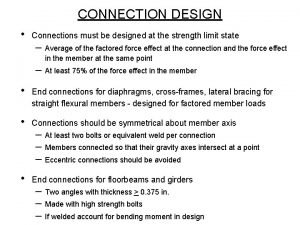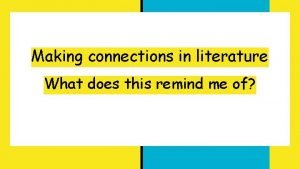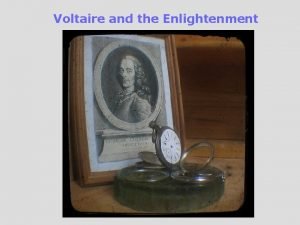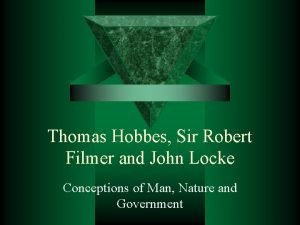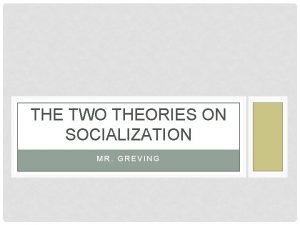The Influence of John Locke on Shelley Connection







- Slides: 7

The Influence of John Locke on Shelley Connection to the Past Presentation

Activity: According to your senses Directions: Reach into the bag (no peeking), feel the object for 10 seconds and then pass it onto the next person. After feeling the object, write down a 2 -3 sentence description of what you felt and make a guess as to what your object is….

Shelley + Locke “Mary Shelley introduced theory of the development of human knowledge and awareness as defined by John Locke in his Essay Concerning Human Understanding which she studied almost daily in December 1816 and January 1817 (Feldman, 148 -154 and Pollin, 107). During this time she was already working on the novel. ” Woodbridge, K. (2013). “Mary Shelley and Knowledge” Retrieved 21 January 2015. http: //www. marywshelley. com/essays/mary-shelley-and-knowledge/

Who Is John Locke (1632– 1704) • • • Philosopher Physician Son of Puritans Well-Educated (Oxford) Writing • “Two Treaties of the Government” • “Essay Concerning Human Understanding” • John Locke. (2015). The Biography. com website. Retrieved 12: 57, Jan 21, 2015, fromhttp: //www. biography. com/people/john-locke-9384544.

Influence of Locke on Shelley • Shelley’s beliefs about the development of human understanding “correspond to those of Locke, concerning the absence of innate principles, the derivation of all ideas from sensation or reflection, and the efficacy of pleasure and pain in causing us to seek or avoid the various objects of sensation” (Pollin, 107). Pollin, Burton R. (1965). “Philosophical and Literary Sources of Frankenstein. ” Comparative Literature 17, 97 -108.

Major Tenets of Locke The mind is a blank slate (Response to Plato’s ideas of innate knowledge” • Knowledge, Morals, God Knowledge is built up from ideas, either simple or complex. • Simple-Experience; Complex-abstract, in relationship to others JOHN LOCKE). Sparknotes. Retrieved 21 January, 2015. http: //www. sparknotes. com/philosophy/johnlocke/section 1. rhtml

From the Creature…. . “It is with considerable difficulty that I remember the original era of my being; all the events of that period appear confused and indistinct. A strange multiplicity of sensations seized me, and I saw, felt, heard, and smelt, at the same time; and it was, indeed, a long time before I learned to distinguish between the operation of my various senses” (Shelley, 87).
